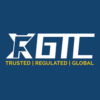
The foreign exchange (forex or FX) market is the largest and most liquid financial market in the world, where currencies are traded 24 hours a day, five days a week. It’s a decentralized market where participants from around the globe engage in the buying and selling of currencies. Here’s a concise overview of the forex market and trading:
- Market Basics:
- Currency Pairs: Forex trading involves the exchange of one currency for another. Currencies are quoted in pairs, such as EUR/USD (Euro/US Dollar), where the first currency is the base, and the second is the quote currency. The exchange rate represents how much of the quote currency you need to buy one unit of the base currency.
- Market Participants: The major players in the forex market include banks, financial institutions, corporations, governments, and individual retail traders. Central banks also influence exchange rates through monetary policy decisions.
- Market Hours: The forex market operates 24 hours a day, starting in Asia and moving through Europe and North America. It closes on weekends and during major holidays. This constant availability allows traders to react to news and market developments in real-time.
- Trading Mechanics:
- Leverage: Forex trading often involves the use of leverage, which allows traders to control a larger position with a smaller amount of capital. While leverage can amplify profits, it also increases the potential for losses.
- Orders: Traders can place various types of orders, including market orders (buy or sell at the current market price), limit orders (buy or sell at a specific price or better), and stop orders (triggered when the market reaches a certain price level to limit losses or secure profits).
- Analysis: Traders use two primary methods for analysis:
- Technical Analysis: Analyzing price charts and patterns to predict future price movements.
- Fundamental Analysis: Assessing economic, political, and market factors that can influence exchange rates.
- Risk and Reward:
- Forex trading offers the potential for significant profits, but it also carries a high level of risk. Traders can lose more than their initial investment, particularly when using leverage.
4. Trading Strategies:
- Traders employ various strategies, such as day trading (short-term trades within a day), swing trading (holding positions for several days or weeks), and long-term investing. Strategies may also be based on technical or fundamental analysis.
5. Choosing a Forex Broker:
- Selecting a reputable forex broker is crucial. Factors to consider include regulatory compliance, trading platforms, account types, spreads, leverage options, and customer support. “Joinforextrade.com” offers detailed broker reviews to assist you in making an informed choice.
In summary, the forex market is a dynamic and accessible market where traders can speculate on the exchange rates of currency pairs. Success in forex trading requires a strong understanding of market fundamentals, a well-thought-out trading strategy, and diligent risk management. “Joinforextrade.com” is your go-to resource for comprehensive information and guidance in your forex trading journey.






